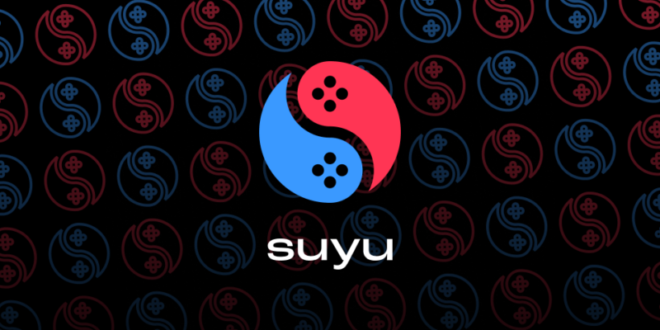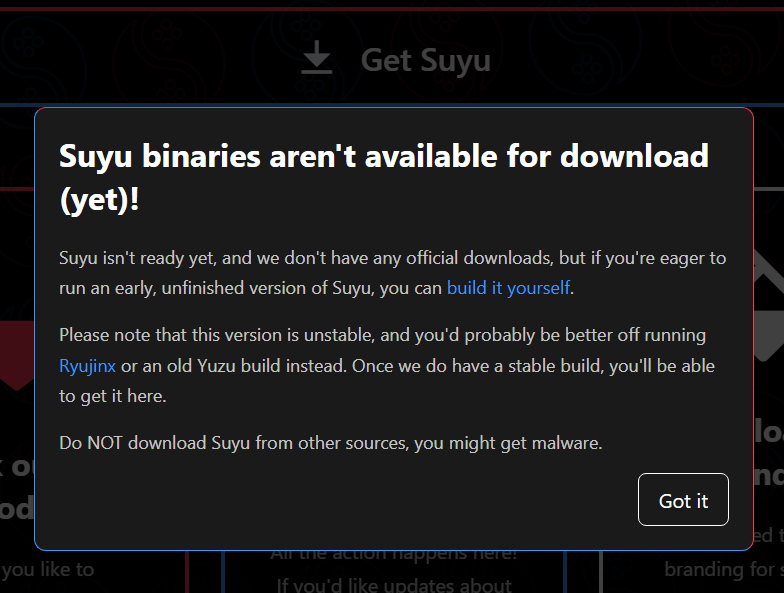The Rise of Suyu: Navigating the Legal Landscape of Switch Emulation
A New Hope Emerges
Last week, the developers behind the popular Switch emulator Yuzu took down their GitHub and web presence in the face of a major lawsuit from Nintendo. Now, a new project built from the Yuzu source code, cheekily named Suyu, has arisen as “the continuation of the world’s most popular, open-source Nintendo Switch emulator, Yuzu.”
Despite the name—which the project’s GitLab page notes is “pronounced ‘sue-you’ (wink, wink)”—the developers behind Suyu are going out of their way to try to avoid a lawsuit like the one that took down Yuzu.
“Suyu currently exists in a legal gray area we are trying to work our way out of,” contributor and Discord moderator Sharpie told Ars in a recent interview. “There are multiple plans and possibilities for what to do next. Things are still being organized and planned.”
Passion Meets Caution
The Suyu project arose out of “a passion for Switch emulation” and a desire not to see “years of impressive work by the Yuzu team go to waste,” Sharpie said. But that passion is being tempered by a cautious approach designed to avoid the legal fate that befell the project’s predecessor.
After consulting with an unnamed “someone with legal experience” (Sharpie would only say “they claimed three years of law school”), the Suyu development team has decided to avoid “any monetization,” Sharpie said. The project’s GitLab page clearly states that “we do not intend to make money or profit from this project,” an important declaration after Nintendo cited Yuzu’s profitability a few times in its recent lawsuit.
The Suyu devs have also been warned against “providing step-by-step guides” like the ones that Yuzu offered for how to play copyrighted games on their emulator. Those guides were a major focus of Nintendo’s lawsuit, as were some examples of developer conversations in the Yuzu Discord that seemed to acknowledge and condone piracy.
Suyu, by contrast, is taking an extremely hard line against even the hint of any discussion of potential piracy on its platforms. The Suyu GitLab page is upfront that the developers “do not support or condone piracy in any form,” a message that didn’t appear on Yuzu’s GitHub page or website.
The No. 1 rule listed on the Suyu Discord is that “piracy is prohibited.” That includes any talk about downloading games or “asking for system files, ROMs, encryption keys, shader caches, and discussion of leaked games etc.”
Under the Hood Changes
Behind the scenes, Sharpie says that the Suyu developers are hard at work “removing all references to Yuzu or Tropic Haze [the LLC set up to run the Yuzu Patreon] from the source code” for Suyu. On a more technical level, Sharpie also said the team is changing certain DRM-circumvention code to help avoid legal liability.
“One of the major parts of Nintendo’s lawsuit was the generation of title.keys by yuzu,” Sharpie said, referring to the game-specific encryption keys used by the emulator at runtime. “That is one of the first things we are removing/reworking. Suyu will require the user to provide their own title.keys, prod.keys, and firmware from their Switch console.”
The Suyu GitLab notes that “in order to use Suyu, you’ll need keys from your real Switch system and games which you have legally obtained and paid for.” But Sharpie admitted to Ars that while the emulator won’t boot without firmware, “there isn’t really a way to verify the keys were dumped legitimately from the user’s Switch.”
A Slow and Steady Rollout
While the Suyu website and GitLab have technically been live since last week—complete with a “brand kit” for uses “such as a news article or YouTube video”—the team is being deliberately cautious about the emulator’s rollout. Compiled binaries aren’t yet available for download, and the Suyu webpage says clearly that “Suyu isn’t ready yet” when you click a large “Get Suyu” button.
You can technically build a copy of Suyu from open-source files on GitLab today, but the website warns this is an “unstable” version meant for active development and that “you’d probably be better off running Ryujinx or an old Yuzu build instead.” The build instructions posted on GitLab note in large text up top that they are “intended for developers only” and that “support will only be given if you’re a developer.”
The team’s slow public rollout is by design, Sharpie said, “both for legal reasons and because we want to have more tangible progress to show before providing any compiled builds.”
“We wanted to fly under the radar at the start until we could, at the very least, figure out what needs to be done in our efforts to keep this project alive,” Sharpie continued. “It’s already much more widespread than ideal for the current stage of development.”
But Sharpie also sees a silver lining in the early attention, noting that it “provide[s] ample opportunity to recruit the experienced developers we need to ensure this project actually gets somewhere.”
The Resilience of Open-Source Emulation
Whether or not Suyu actually manages to “get somewhere,” the project’s quick emergence after Yuzu’s shutdown shows how tough it can be for console makers to completely kill open source emulators via legal maneuvering. Wherever there’s sustained user interest and an extant copy of the source code floating around, a community of coders will almost always coalesce around even the most locked-down and shuttered open source projects.
 Retro-Replay.com Retro gaming reviews, news, emulation, geek stuff and more!
Retro-Replay.com Retro gaming reviews, news, emulation, geek stuff and more!





